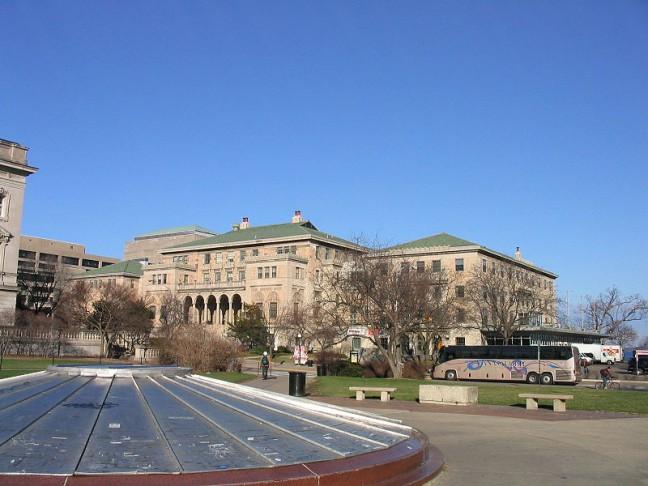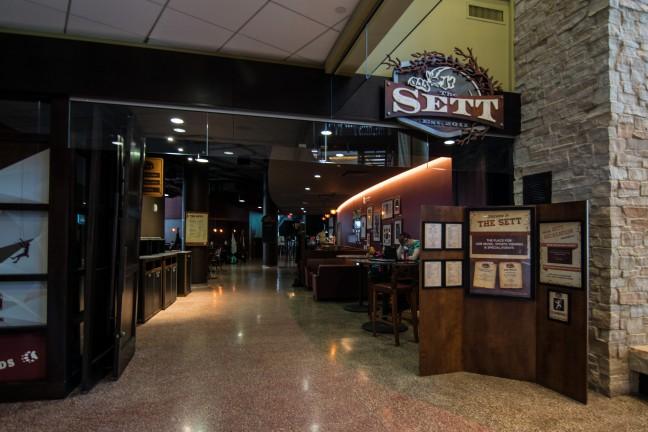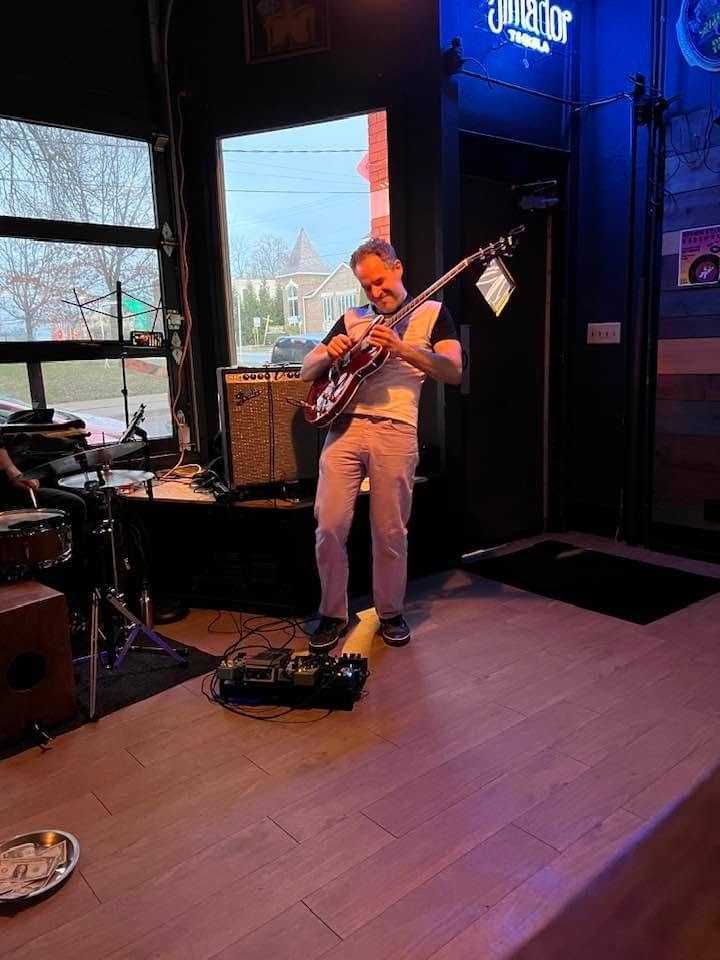The performance began with a single woman draped in an animal-print scarf underneath the spotlight, plucking away at an inganga, a traditional Ugandan instrument, and belting out lyrics in Kinyarwanda. As her voice sped up, the energy throughout the theater changed. More musicians slowly joined her on stage and the audience began to clap. By the end of the song, the stage was full of 13 musicians who infected the crowd with their smiles and spirited music.
At the Frederic Play Circle in Memorial Union on Feb. 26, 27 band members from nine out of the 11 countries surrounding the Nile Basin in Africa came together to perform as part of The Nile Project. The Nile Project is an organization that educates university students about the culture and ecosystem of the Nile River basin, aiming to promote future engagement.
The organization’s CEO and co-founder, Mina Girgis, hopes to utilize music as a tool to inspire and educate the public about social, cultural and environmental challenges facing the Nile. The Nile River is the longest river in the world that is vital to so much life. By organizing and increasing engagement globally, it makes sustainability and conservation of this important water source more feasible.
Girgis and singer/co-founder Meklit Hadero, came up with the idea back in 2011 in San Francisco. Their main goals are to bring together these 11 countries surrounding the Nile while highlighting the benefits the water source brings.
Girgis made a small introduction in the beginning of the show describing the goals of the organization.
“The integration of music with youth, leadership and innovation—we hope—will create a driving force that will change the way Nile citizens relate to each other and their shared ecosystem,” he said.
During the show, the group’s engagement with the audience created a welcoming community. The vocalists encouraged clapping and would demonstrate how to dance to a particular beat. Before a new instrument was used, a musician would explain a little about its history and ask the audience to repeat after them.
Specific to student engagement, not much was emphasized during the show, although often the musicians would voice their opinions and gratitudes toward the university for the opportunity. The project focused more on direct engagement with students during their workshops, held earlier in the day.
Throughout the show, each musician had their own feature and the dynamic constantly changed. At certain points, the singers’ voices took over and reverberated throughout the Play Circle. By singing songs in their native languages, the performers forced the audience to pay close attention to every word. At the more lively points, people from the crowd sang along with the vocalists in languages such as Arabic or Amharic.
Singer Selamnesh Zemene encouraged everyone to get up on their feet for her piece. Zemene’s song had an upbeat solo by saxophonist Jorga Mesfin. The playful vibe made everyone in the audience move with the music while Zemene twirled around on stage.
Singer Alsarah’s song focused on the group’s core beliefs about water and sustainability. She explained her piece as a “love song to the Nile.”
Although the members of the project come from different backgrounds and speak different languages, they all depend on one thing: the Nile River.
Guitarist, bassist and vocalist Steven Sogo described the collaboration as a learning process and a journey.
“In Africa, we have a bad habit of not listening to one another,” he said. “As we come from different countries, each one brought his music. We just come together and share experiences to teach and learn from one another as well.”
Engaging the audience was a clear priority for the group, which encouraged dance and integrated humor into their performance. During one song, they split the audience into three groups singing one word continuously but in different tones. When the song was finished, Sogo informed the crowd that the whole time, they were singing a word that meant “stupid.”
Singer Alsarah bantered, “Don’t worry, he got me with that one too.”
The Nile Project is currently touring 35 universities and offering free workshops to those interested. These workshops typically incorporate politics into music by providing instrumental demonstrations and emphasizing African identity.
Most songs had a small introduction describing the musicians and the instruments being utilized. During one of these introductions, Sogo posed a question.
“What have you contributed to the river?” he asked as the audience fell silent. “That is your question, not mine.”




















